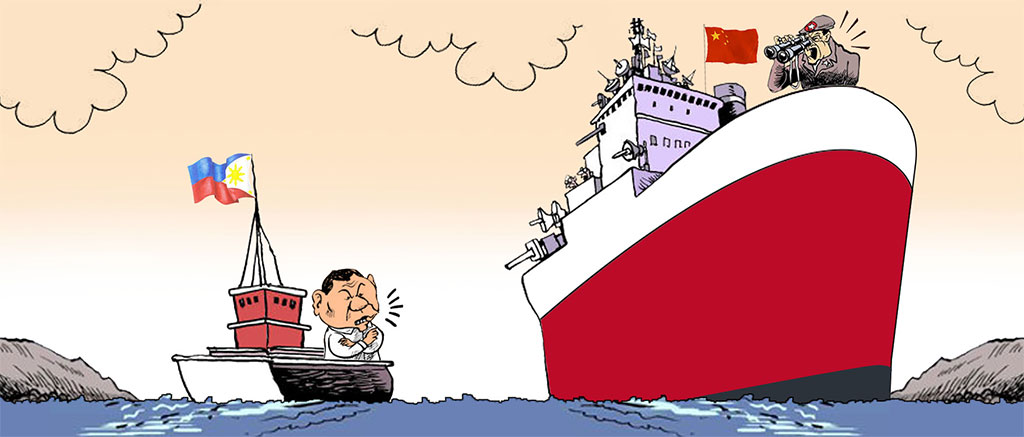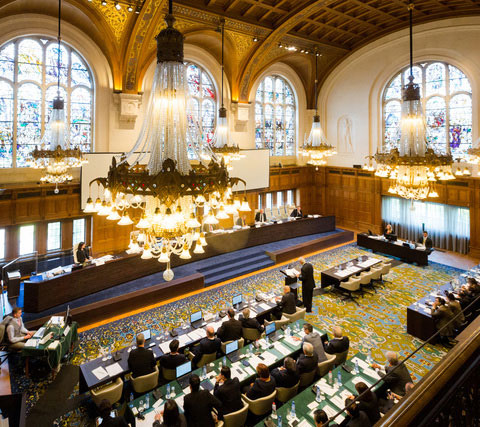 Acting on the May 12, 2015 letter of Atty. Jennifer H. dela Cruz, President of the Association of Clerks of Court and Ex-Officio Sheriffs (ACCES), the Supreme Court (SC) issued a Resolution dated Februar y 2, 2016 in A.M. No. 15-07-12-SC, clarif ying that that court sheriffs may not enforce writs of execution issued by quasi-judicial bodies such as the Construction Industr y Arbitration Commission (CIAC).
Acting on the May 12, 2015 letter of Atty. Jennifer H. dela Cruz, President of the Association of Clerks of Court and Ex-Officio Sheriffs (ACCES), the Supreme Court (SC) issued a Resolution dated Februar y 2, 2016 in A.M. No. 15-07-12-SC, clarif ying that that court sheriffs may not enforce writs of execution issued by quasi-judicial bodies such as the Construction Industr y Arbitration Commission (CIAC).
The Resolution affirmed the Supreme Court’s earlier Resolution dated August 26, 2014 in A.M. No. 14-7-224-RTC denying the request of General Santos City Regional Trial Court Clerk Marion Gay Mirabueno to designate a court sheriff to implement a writ of possession issued by the National Commission on Indigenous Peoples, a quasi-judicial or executive agency. The SC held in that case that “the NCIP is an agency under the executive, rather than the judicial, branch of government. Its orders are not judicial orders, which are within the authority of sheriffs, as judicial officers, to execute.”
This development has put the CIAC in a quandar y since Rule 18.5 of the 2010 CIAC Revised Rules of Procedure provides that “(a)s soon as a decision, order or final award has become executor y, the Arbitral Tribunal (or the sur viving remaining member/s), shall, motu proprio or on motion of the prevailing party issue a writ of execution requiring any sheriff or proper officer to execute said decision, order or final award. If there are no remaining/ sur viving appointed arbitrator/s, the Commission shall issue the writ prayed for.”
Following the SC Resolution, writs of execution issued by the CIAC may no longer be implemented by court sheriffs. As of this writing, the CIAC has no official sheriffs to enforce its awards on construction arbitration. However, this will not prevent the parties from voluntarily complying with the award.

PART TWO
To negotiate or not to negotiate:
The West Philippine Sea dispute between the Philippines and China
In Part 1, the author discussed the backdrop of the current dispute between the Philippines and China on the West Philippine Sea and analyzed how Great Britain dealt with Nazi Germany before the Second World War. In this final part, the author explores why negotiation with China is not a viable option.
Did Great Britain, under Winston Churchill, eventually negotiate with Nazi Germany? No. Why?
Based on available historical records studied by Mr. Mnookin, while Great Britain was considering negotiating with Nazi Germany and tr ying to avoid a confrontation with it, the latter was invading and annexing several countries in Europe to the point of threatening Great Britain’s independence. Looking at Germany’s pattern of behaviors at that time, Great Britain’s leadership concluded that Germany’s Hitler cannot be trusted and was a “completely unreliable negotiating partner”. Hence, Great Britain did not pursue negotiation with Germany.
One insight that Mr. Mnookin shares is this: As a general rule, always consider negotiation as a mode of resolving your dispute. But don’t negotiate if your prospective counterparty is not a reliable negotiating partner.
Transposing that lesson now to the Philippines’ West Philippine Sea dispute with China, can the Philippines properly treat and consider China as a reliable negotiation counterparty given that China, while insisting that bilateral negotiation between it and the Philippines is the only effective mode of resolving their present dispute, simultaneously and actively occupies various reefs in the disputed areas, building artificial islands and militar y installations?
Rights-based approach in dispute resolution
Instead of pursuing bilateral negotiations with China, which the latter has been insisting on all along, the Philippines has pursued arbitration of its claims against China before the United Nations tribunal in the Hague on the basis of the Philippines’ claims of maritime entitlement over the disputed areas. Does this move on the part of the Philippines find support under sound principles of dispute resolution?
As matters stand at the moment, there is apparently a huge power imbalance between China and the Philippines. China is now on its massive reclamation spree of the many reefs found within what the Philippines claims to be its territory. The Philippines, likewise, is also not in a position, militarily, to deter or stop China from doing so. Given this situation, what else could be a good option for the Philippines?
It is submitted that in case of obvious power imbalance between the disputing parties, when one party cannot possibly expect to pursue its interests or have its interests respected by its counterparty, negotiation is not a viable option. Instead, the “weaker” party, if it has stronger rights in the given situation, should pursue a rights-based dispute resolution approach (Frank E. A. Sander & Lukasz Rozdeiczer, “Matching Cases and Dispute Resolution Procedure,” 2006 Har vard Negotiation Law Review).
In the Philippines’ case, does it have stronger rights against China? In pursuing arbitration, the Philippines obviously thinks so. As of the moment, while China refuses to acknowledge the tribunal’s jurisdiction, the same tribunal has declared that it has jurisdiction over the main claims brought by the Philippines. A ruling on the merits of the case, including a ruling of the legality of China’s “nine-dash line” is expected in May or June of this year.
Third parties’ involvement in the dispute

Faced with China’s overtly aggressive and hardline posture, the Philippine government is now pursuing a policy of modernizing and strengthening its military. Even then, however, the Philippines’ militar y capability pales in comparison with China’s firepower. Be that as it may, an adversarial confrontation, short of war, is definitely not a welcome option given that it is very costly in terms of loss of resources and lives.
However, we also find in the news that the United States (and Australia), among others, is asserting its “right of navigation” over the disputed areas. However, the U. S. does not maintain exactly the same position or interest as the Philippines in the latter’s dispute with China. Likewise, the G7 nations, composed of Canada, France, Germany, Italy, Japan, the United Kingdom and the United States, as well as some ASEAN countries, were reported to have issued statements opposing and condemning the massive reclamation activities of China within the disputed area.
In cases of power imbalance between disputing parties, another good approach of the “weaker” party is to build alliances with third parties. Hence, the Philippines has found allies among the U. S. and Australia, who are asserting their “rights of navigation” over the disputed area, and other states which oppose and condemn China’s reclamation activities within the disputed area.
The Philippines’ alliance-building ef forts find support in sound dispute-resolution principles. However, alliances are most effective only to the extent that the interests of the parties in the alliance are fully aligned with each other (Leigh L. Thompson, The Mind and Heart of the Negotiator). How the Philippines’ present “alliance” with the U. S. and other states will impact the present dispute between the Philippines and China, as it evolves, is worth watching.
